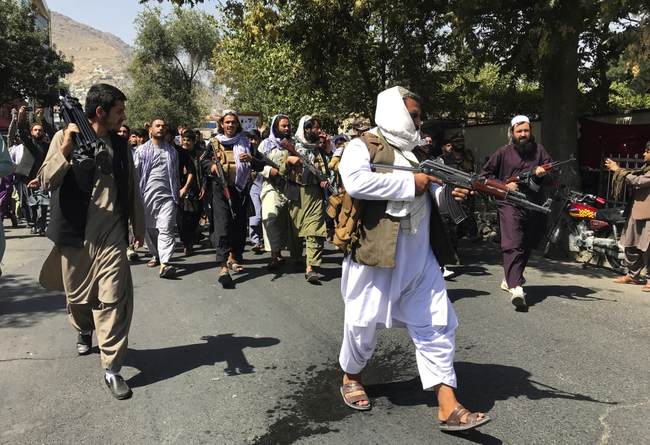The Stone Age Is Calling: Taliban Shuts Off Key Service to Entire Country Over ‘Immorality’ Concerns
- Taliban cut nationwide internet and phone access to enforce moral controls.
- The blackout chokes travel, banking, education, and women’s freedoms.
- Global outrage is uneven, exposing selective activism and media bias.
We hear plenty of hyperbole at home about freedoms being under siege, but the reality in Afghanistan is stark and brutal under the Taliban’s rule. The group deliberately pulled the plug on the country’s fiber optic backbone and phone services, leaving millions in the dark and the economy sputtering. This isn’t theory or opinion; it is a policy choice that weaponizes isolation.
When an entire nation’s flights are grounded, banks freeze, and citizens lose access to news and each other, you’re watching authoritarianism at work. Reuters and monitoring groups like NetBlocks reported traffic dropping to around one percent of normal, which is not a technical hiccup but a strategic shutdown. The Taliban defended the move as a way to curb “immorality” online, a thin excuse for crushing dissent and policing private life.
Let’s be blunt: cutting communication is about control, not morality, and it’s the same playbook despots use everywhere. The consequences are immediate and wide — students lose schooling, businesses can’t operate, and families can’t reach loved ones abroad. For women and girls already under siege, this blackout is another brick in a wall meant to erase their presence from public life.
The blackout is said to have come after Afghanistan’s 9,350-kilometer fiber optic network was disabled, leaving flights grounded, banks frozen, and millions of citizens and businesses cut off.
Kabul International Airport has seen all commercial flights canceled or marked as “unknown,” leaving the country’s main air hub virtually deserted, per Reuters.
Monitoring group NetBlocks also confirmed to Reuters that traffic levels had dropped to around one percent of normal, underscoring the unprecedented scale of the disruption.
And yet, outrage is oddly selective across global media and activist circles, which raises uncomfortable questions about whose suffering gets center stage. There were huge campaigns for some atrocities while others go with muted response, leaving Afghan women to bear the quiet of a world that sometimes looks the other way. That inconsistency matters because attention can drive action and pressure.
Below are voices and calls that try to fill that gap and force the conversation back to basic human rights and dignity. The Taliban’s phased takedown began weeks earlier, and it closely follows decrees aimed at erasing women from public life, which should alarm anyone who values liberty. The blackout is not tradition or religion; it’s power hungry men deciding what an entire population may know.
What’s the difference between Boko Haram and the Taliban?
One kidnapped girls in Nigeria, and the world launched #BringBackOurGirls.
The other has erased girls’ education in Afghanistan banning schools, banning the internet, yet there is no global outcry. Do Afghan women not deserve the same movement?
NetBlocks confirmed the shutdown progressed in phases, with the final wave killing telephone service too, which uses the same infrastructure as the internet. Officials say this is to curb “immorality” online, but the effect is total isolation from the global conversation and immediate harm to everyday life. When information is a casualty of governance, liberty itself becomes endangered.
NetBlocks also confirmed connectivity was cut in phases starting on Monday, with the final stage also affecting telephone services, which share infrastructure with the internet.
The nationwide blackout appears to be part of a phased campaign led by Taliban leader Hibatullah Akhundzada in Kabul. Earlier in September, he directed the dismantling of fiber optic networks in many provinces.
Officials have defended the move as a way to curb “immorality” online, echoing earlier statements from provincial governors.
Think about what life was like a century and a half ago with few phones and no internet, then realize that this shutdown aims to rewind that progress by force, not happenstance. The comparison to dystopian fiction is lazy when real women are losing real freedoms under real orders from real men in power. Next time someone shrugs at warnings about authoritarianism, point them to Afghanistan and the women living its consequences.


Leave a Comment